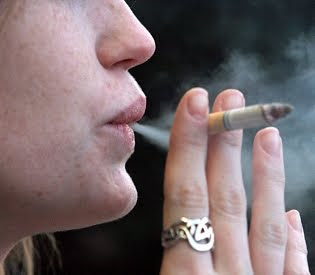
The price of cigarettes in Dubai will double from about Dh8 to Dh16, starting in August.
The increase will be in the form of a tax applied by Dubai Municipality.
The move is aimed at making it difficult for young people to buy cigarettes, said Wedad Al Maidoor, head of tobacco control at the Ministry of Health.
"This is great news," she said. "It will make the UAE a pioneer in the region, and others will be motivated to follow. Kids will not be able to afford it because it'll be too expensive."
Qadi Al Murooshid, director general of Dubai Health Authority, also welcomed the price increase. "We are very happy with this step and pleased with this move to protect our environment," he said.
Figures from the authority suggest 17 per cent of Dubai residents are smokers, with men five times more likely than women to smoke, and about 11 per cent of young
people smoke cigarettes.
The average cost of a pack of cigarettes in a grocery is Dh8, of which Dh4 is tax. Petrol stations charge a dirham more. Even doubled, the new price will be considerably lower than in the UK, where cigarettes retail for the equivalent of about Dh42.
The UAE imposes a 100 per cent customs tax on all imported tobacco products, but the amount is so small that consumers barely notice it, Dr Al Maidoor said.
Health officials have been working with the Ministry of Finance since 2010 to put an additional 100 per cent federal tax on tobacco, but no action has yet been taken.
"If the tax is implemented, a portion of it would be used for combating tobacco, including educational initiatives and the treatment of chronic diseases such as lung cancer," Dr Al Maidoor said.
"But it's a very difficult and complicated process as each emirate has its own customs port and wants to apply its own requirements."
A bylaw proposed by the health ministry in 2010, which would ban indoor smoking throughout the country and require stores to apply for a licence to sell tobacco products, would raise prices even further, Dr Al Maidoor said.
"An additional tax would be charged to the retailer, and therefore the store would be required to increase the price," she said. "This would bring us even closer to prices in the US or the UK."
Most smokers said yesterday the price increase would cause them to smoke less, but it would not motivate them to give up.
"I will not quit, but I won't smoke as frequently," said Daniel Chaalan, 25, a business owner from Syria. "But this is a great move for school children who have a very low income."
Hassan Khaleel, 29, an IT consultant, said an increase in price would cause him to smoke less but he would "cherish the moment" he has with every cigarette.
"Actually it would make me feel more special," he said. "I would value the cigarette more, enjoy it and try to smoke it at just the right time."
Others said they would find a way around the high prices.
"It simply means I'll have to buy more cigarettes from duty free at the airport, or economy packs from other emirates," said Mohammed Ali, 29, a Palestinian. "To truly make a difference, this would have to be applied countrywide."
Health experts nevertheless praised the price increase as an important step to combat smoking, which is the main risk factor for heart disease, the leading cause of death in the UAE and worldwide.
"There are two important factors to reduce smoking," said Professor Sydney Smith, president of the World Heart Federation. "One is the prevention of second-hand smoking, and the other is taxation. In this part of the world, people start smoking as early as 11 or 12, not 18 or 19, so taxation has great potential here."
Combined efforts in the US have helped to reduce the smoking rate among adults from 30 to 20 per cent. According to last year's G20 report by Bill Gates, a tobacco tax of 10 cents in high-income countries, six cents a pack in middle-income countries and two cents a pack in low-income countries could result in a revenue of US$10.8 billion (Dh39.7bn) a year.
"This is phenomenal, if we could raise that money and get going," Prof Smith said. "It's one of the really easy things we can do. And to do nothing, really, is to allow something bad to happen."












